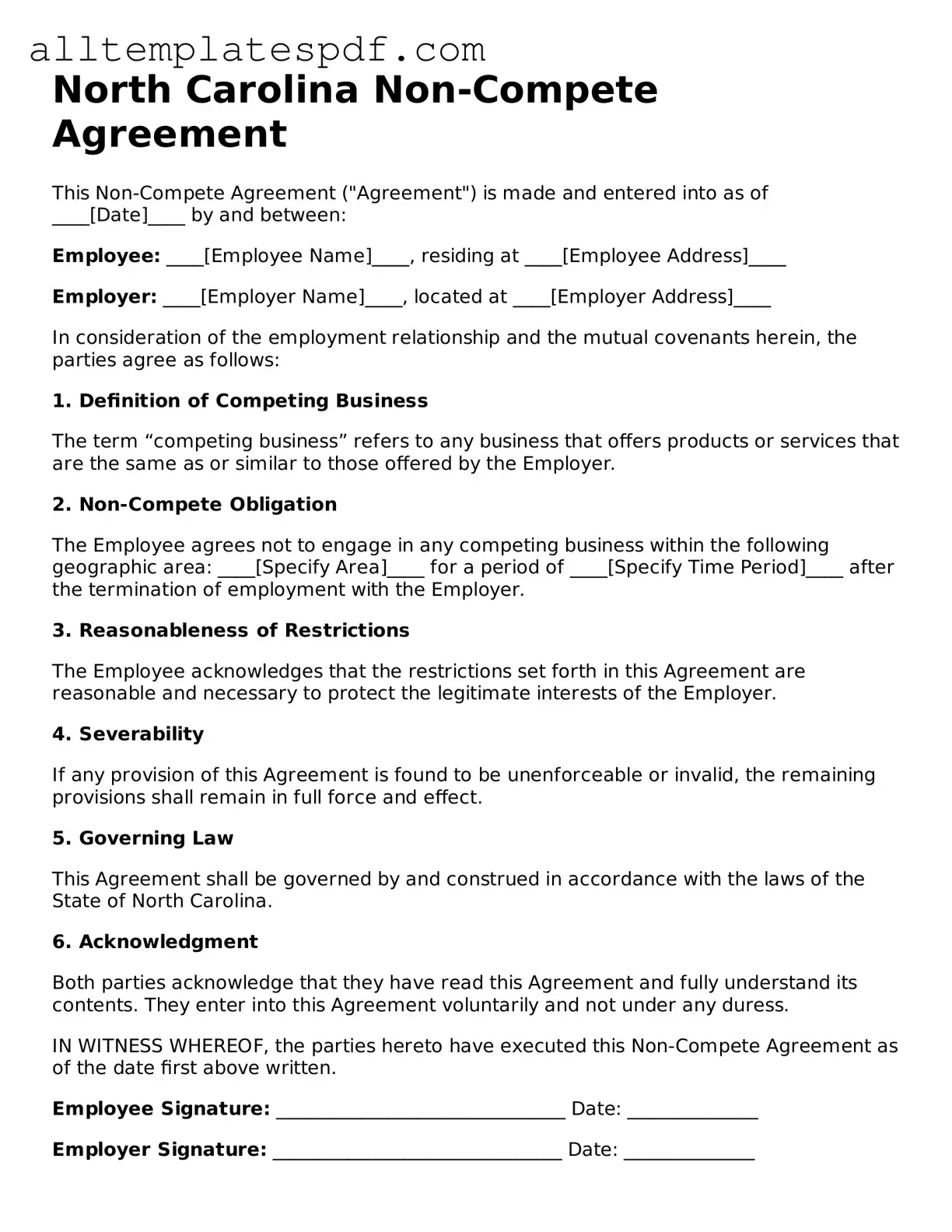Filling out the North Carolina Non-compete Agreement form can be tricky. Many people make mistakes that can lead to misunderstandings or legal issues down the line. One common mistake is failing to clearly define the scope of the agreement. It's important to specify what activities are restricted and for how long. Vague language can create confusion and may not hold up in court.
Another frequent error is not including specific geographic limitations. Non-compete agreements should outline the areas where the restrictions apply. Without this detail, the agreement may be deemed overly broad, making it difficult to enforce. It's essential to be precise about the locations involved.
People often overlook the importance of considering the duration of the non-compete clause. If the time frame is too long, it may be seen as unreasonable. Courts in North Carolina generally favor agreements that are fair and balanced. Therefore, a reasonable duration is key to ensuring the agreement is enforceable.
Some individuals fail to take into account the interests of both parties. A one-sided agreement may not be upheld in court. It's important to ensure that the terms are fair and consider the needs of both the employer and the employee. This balance can make a significant difference in the agreement's validity.
Another mistake is neglecting to review the agreement with legal counsel. Legal advice can help identify potential pitfalls and ensure that the agreement meets all necessary requirements. Skipping this step can lead to costly mistakes that could have been avoided.
Many people also forget to provide adequate consideration. In legal terms, consideration refers to what each party stands to gain from the agreement. If the agreement lacks sufficient consideration, it may not be enforceable. Employers should offer something of value, like a job or training, in exchange for the employee's agreement.
Some individuals mistakenly assume that a non-compete agreement is automatically enforceable. This is not always the case. Courts will examine the reasonableness of the agreement in terms of duration, geographic scope, and the interests of both parties. Therefore, it is crucial to ensure that all elements are reasonable.
Another common error is not keeping a copy of the signed agreement. It’s essential for both parties to retain a copy for their records. This can help prevent disputes in the future and provide clarity if questions arise about the terms of the agreement.
Lastly, people sometimes fail to update the agreement as circumstances change. As businesses evolve, so do their needs. Regularly reviewing and updating the non-compete agreement can help ensure it remains relevant and enforceable. Keeping the agreement current is vital for both parties.

